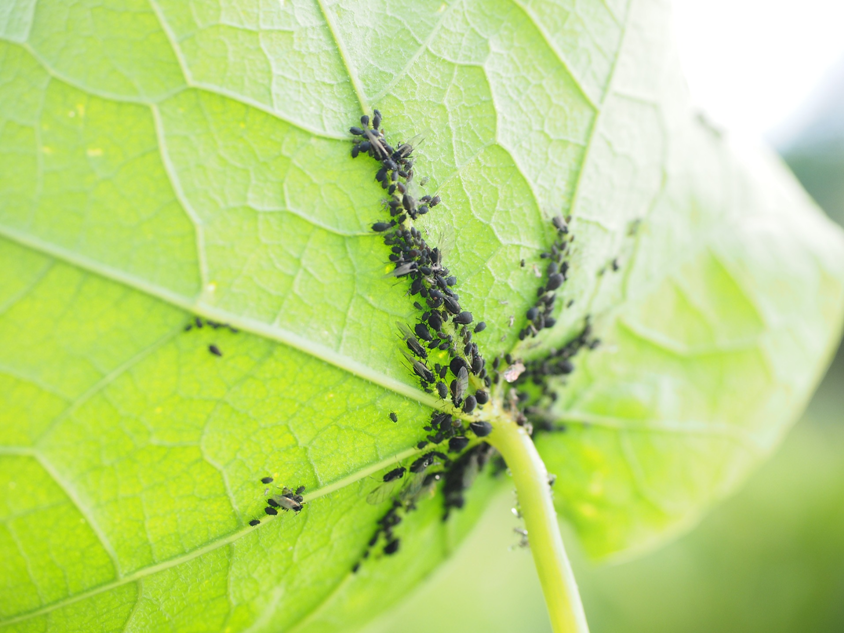
Pest problems are a great menace to many farmers and gardeners. Carefully cared for fruits, vegetables and flowers can be destroyed by such pests leaving owners with huge losses and frustrations. The best way to avoid problems from insect damage is by knowing how to keep pests away in the first place. Doing so will not only save you from losing your vegetable garden but will also save you precious time and from the expensive purchase of pesticides.
Sometimes a grower will do everything for their vegetables, but still, pests will infest their farms and gardens. In such a case, first identify the pest responsible for the damage and then take appropriate pest elimination methods to avoid the destruction of the yields and the soil. Biological pests control methods are the most preferred because they do not cause much harm in the vegetable garden.
Top 10 tips for keeping insect pests off your vegetable garden
1. Space out your plants

Squeezing your plants to fit your small kitchen garden can lead to a number of problems. Tightly packed plants will prevent your crops from getting enough air and will form an excellent shelter for pests. Pests will find it easier breed and will multiply at a faster rate.
Ideally leave generous spacing between plants. This allows for the free flow of air within and around the plants and discourage them from being invaded by insects.
2. Encourage predators to your garden
Not all insects cause havoc to the crops. Some insects are actually beneficial to the health of the plants. It is because they are carnivorous, and they will feed on the pests attacking your crops. Ladybug nymphs are known to feed on aphids. Have plants that will attract them to keep them coming. Such crops include marigolds and some herbs. Other carnivorous insects include; dragonflies, honeybee, lacewings, and hoverflies. These will all help to naturally control pest insect populations.
Encouraging larger natural predators to your garden can also help to control insect pest populations. Toads and frogs are great predators to encourage to your garden, as well as some birds. However, be cautious about the type of bird you introduce as some birds may end up feeding on your crops.
Make your farm or garden welcoming to these animals by providing food and shelter. For example, planting trees and shrubs for shelter and providing clean water can help attract birds to the garden.
3. Water your garden in the morning
Watering your plants early in the morning will allow your crops to stay hydrated during the hot period of the day. They will make them less appealing to pests. The leaves of your plants will also have adequate time to dry up, especially for crops planted very close to each other.
4. Harvest at the right time

Ensure that you start harvesting once the crops are ready. Overripe fruits or vegetables form an easy target for insects and pests.
5. Maintain a clean garden
Another simple job that can help discourage pest insects is to clear debris in your garden. Plant debris becomes a good hiding point for pests where they can breed and grow. Cleaning up your garden will help discourage pest insects.
6. Use natural sprays
You can employ natural sprays such as mineral oils, salt spray, and garlic spray. It will help deter the pests from landing on your plants. These are also typically safer for your health compared to insecticides and pesticides bought from the store.
7. Manually hand-pick large bugs
Certain insects are large enough to be seen clearly by eye. Pests such as beetles, cabbage worms, and squash bugs are visible. You should pick them manually and get them out of the garden. It will help reduce the population in the yard.
8. Cover crops using nets
Netting plants can assist in keeping large bugs away from your plants. However this may not protect your crops from smaller insects, it is therefore essential to frequently check in case of an invasion by other tiny insects.
9. Get rid of sick plants
Sick and weak plants attract pests. Check your garden regularly and get rid of sickly plants. Plants grown in healthy soils are shown to be healthier and less prone to disease and insect damage. The best way to improve the health of your soil is to add high quality compost.
10. Practice crop rotation
Leaving plants in the same place every season allows pests to make a strong base in your garden. Rotating your crops at different locations will disrupt the behavior of the bugs in your garden.
Order now! Find all your bokashi composting supplies in our online shop.
Other posts you might like to read:
Benefits of bokashi composting
The importance of healthy soil
Top 7 health benefits of gardening


Leave a Reply